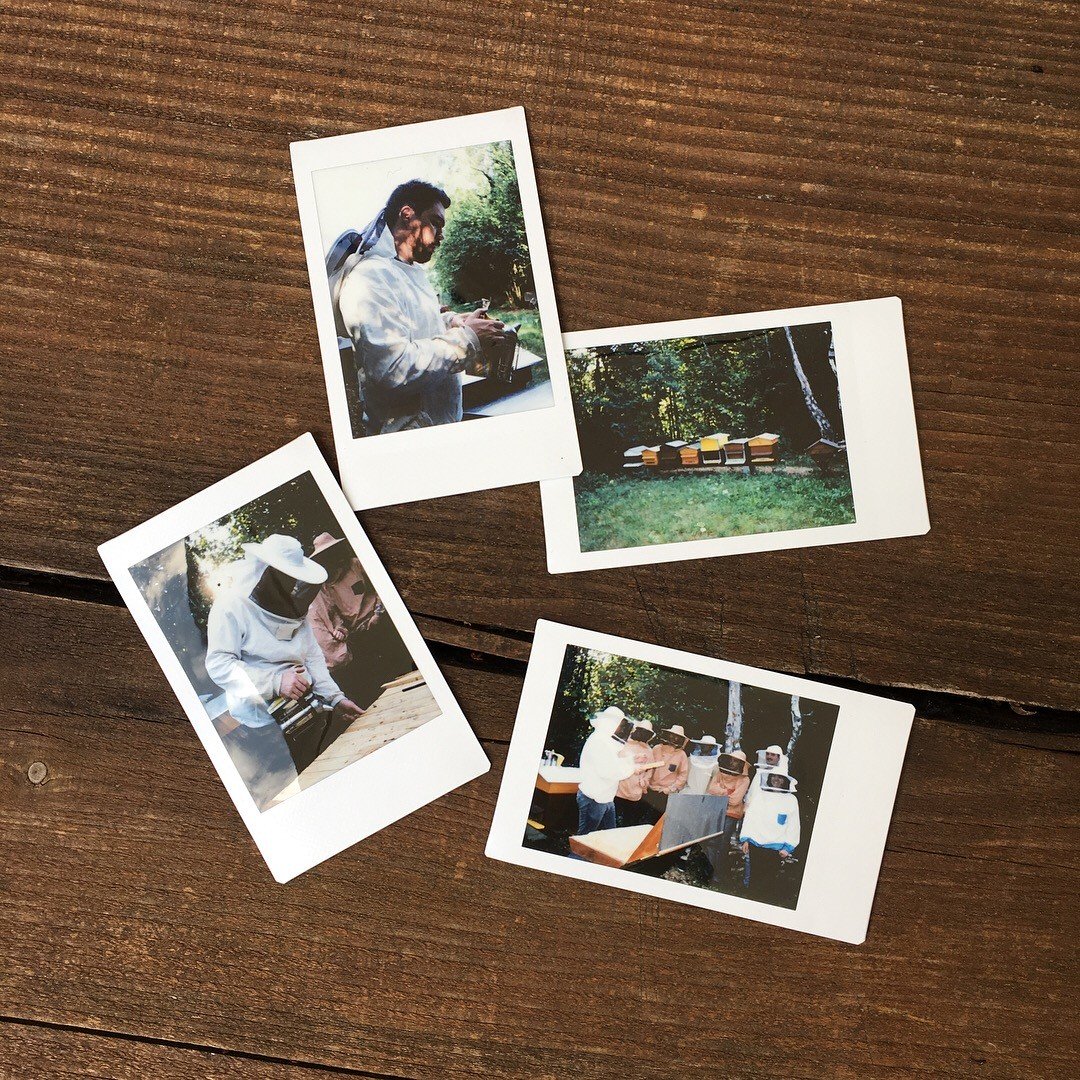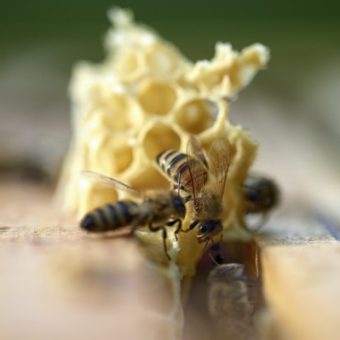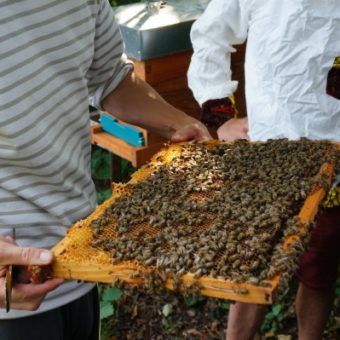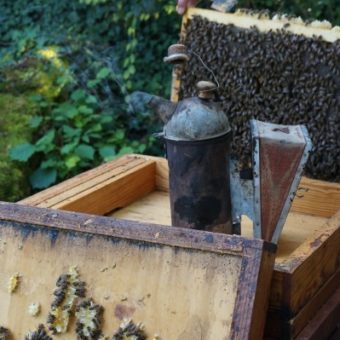For our team, last week saw a rural conclusion, with a visit to the Apptitude beehive on Friday evening.
Those of you who follow Apptitude’s adventures may know it, we have been sponsoring a beehive through the association mellifera for 3 years now. This association was co-founded by one of our partners, Mikhaél Minisini, who in his spare time is finalizing his federal beekeeper’s certificate.
Sponsorship, not just a matter of ideology
The advantages of sponsoring a hive in three points:
Support for beekeeping.
Yes! Our striped friends and pollinating insects provide us with a third of our fruits and vegetables.
Each year we receive a quota of forty pots of honey.
…and it is really delicious ?!
An annual visit of our beehive and the apiary.
For a company, this is a fabulous opportunity to consolidate the team spirit among your employees.
How the visit unfolds…
The apiary in which the Apptitude beehive is located is situated on the top of a small hill at the edge of the Aubonne Arboretum.
A bucolic setting with a multitude of fruit trees, colorful hives, and the buzzing of the bees make it the perfect place to spend a convivial afternoon in the sun.
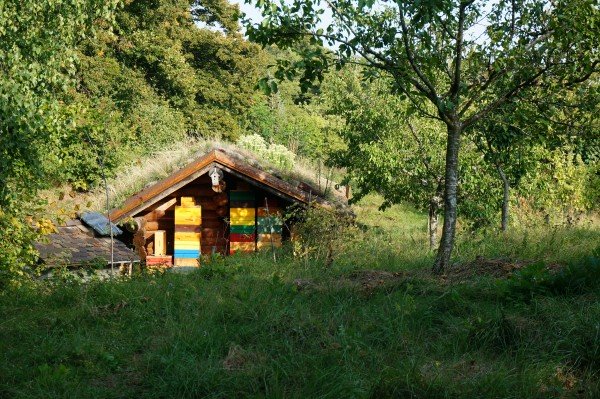
Following a warm welcome from Mikhaël and Guillaume, we all put on the mandatory but nevertheless stylish pea-jacket. We then split into two groups to benefit the most from the knowledge of our hosts of the day.
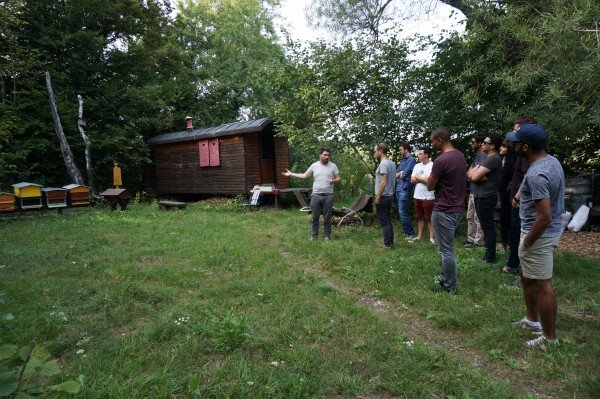
Here we are immersed in the mysterious and exciting world of beekeeping: discovering the seasons as it relates to the life cycle of bees, opening hives, discovering a queen, tasting honey at its source, observing the famous dance of the bees, marking a false bumblebee and much more.
The beekeeping parenthesis
We have mentionned them a lot, but what is actually a double beehive?
A twin hive or double hive commonly also called a queen beehive is a hive in which two colonies of bees live, separated by a median wall.
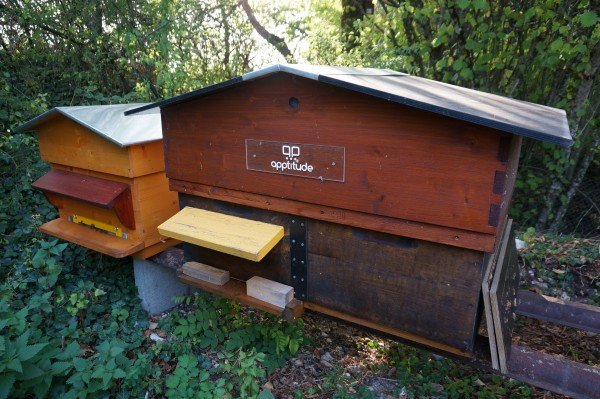
The activity of the bees in the hive generates heat. This heat is then shared and diffused through said wall. This exchange of energy favors the activity of its occupants which results in higher production of honey. This synergy leads to a triple or even quadruple production compared to a “standard” hive.
So why aren’t there only twin hives?
Simply put, the increased activity of the twin hive requires more maintenance and investment on the part of the beekeeper. The increase in traffic generated also has an impact, not always positive, on neighboring hives. The higher yield is therefore not always compensated for by the additional efforts incurred.
In summary, it was an extremely interesting visit both visually and in terms of the knowledge gained. All these explanations made us aware of the life, the role of bees, and their importance for our world.
Once the didactic part was over, we continued our evening with an aperitif and barbecue – we had called on our friends from HappyMeat to enjoy some delicious prime rib. At the end of the meal, we had the pleasure of tasting those famous camemberts prepared by Cyrille over a wood fire – what a discovery!
The end of the evening continued with lots of laughter and ended with a night in a tent for the more daring of us ⛺.
Sponsor your own beehive!
We warmly encourage you to sponsor or offer the sponsorship of a beehive, to allow your company, your relatives, and friends to also visit the apiary, taste exceptional honey and support a noble cause ??.

